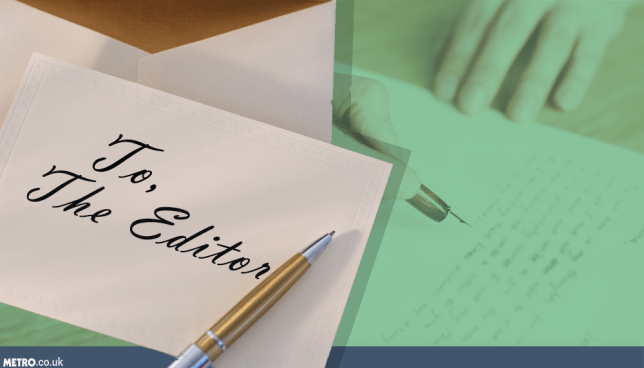We must remember the Ethiopians in prayer
Dear Editor,
I have made it a habit of watching the Al Jazeera news channel daily to stay up to date with the happenings around the world.
As I view the news, I have noticed a development which is extremely troubling to me. Over the past couple of days, it has been reported that conflict has broken out in the Tigray region in northern Ethiopia.
However, before I outline the troubling aspects of this conflict, I must give some chronicle to the events which led to the current unrest in the Tigray Region.
In May 1991, two years after the fall of the Soviet Union, Ethiopia’s communist government, led by Colonel Mengistu Mariam, was toppled by The Ethiopian People’s Revolutionary Democratic Front (EPRDF). The coalition was led by the Tigray People’s Liberation Front (TPLF).
Even though the communist government fell in May 1991, general elections were not held until August 1995. In these elections, The EPRDF sweets to power in poorly contested elections. The leader of the Tigrayans section of the EPRDF, Meles Zenawi become Ethiopia’s first prime minister. Tigrayans dominated the newly appointed government.
The Tigrayan Prime Minister, Meles introduced a system of ethnic federalism, which gave the country’s main ethnic groups the chance to govern the areas in which they dominated.
However, political commentators noted that though Tigrayans made up only about 5% of the population, they benefited disproportionately, as they received a great portion of the government’s infrastructural spending, while other regions languished.
After Meles died in 2012, Hailemariam Dessalegn, a politician belonging to the Wolayta ethnic group became the Prime Minister of Ethiopia.
Between 2015-2018, street protests broke out as many Ethiopians called for political reforms.
These protest leads to Abiy Ahmed, a member of Ethiopia’s Oromo group, taking over as prime minister in April 2018. Ahmed won praise at home and abroad for opening up one of Africa’s most restrictive political and economic system. Ahmed oversaw a crackdown on corruption and past abuses.
Former senior military and political officials, many of whom are ethnic Tigrayans, are put on trial. Ahmed continued to win international goodwill and recognition as he ended two decades of hostility with Ethiopia’s former breakaway province, Eritrea.
This was done despite the Tigrayan regional government still viewed Eritrea as an enemy. Despite opposition to his peace programme, Ahmed pushed on.
Eventually, his peacekeeping efforts resulted in him winning the 2019 Noble Peace Prize, beating out other nominees such as U.S. President Donald Trump and WikiLeaks founder Julian Assange.
After Ahmed normalized relations with Eritrea, relations between Tigrayan political elites and the rest of Ethiopia continued to deteriorate as Ethiopia’s ruling coalition, the EPRDF agreed in 2019 to form a single party.
However, the TPLF refused to merge with three other ethnic-based parties, calling the move “rushed and undemocratic”.
Tensions skyrocketed to newer heights in September 2020, as Tigray held regional elections in defiance of the federal government’s proclamation, which postponed nationwide polls due in August due to the COVID-19 pandemic.
The Ethiopian government said that the vote was illegal. In response to the “illegal” election, the federal government began to withhold funds meant for social welfare programmes in Tigray. These tensions led to TPLF attacking federal troops based in the region, as they believe that the federal government’s moves to economically strangle the region were a step too far in punishing the region. The conflict has led to bloodshed, as the Ethiopian military claims that it has killed 550 fighters.
The alarming development, however, is, on Thursday last (November 12th), Amnesty International reported that scores, likely hundreds of apparent civilians were massacred in Mai-Kadra, a town at the western edge of the Tigray region.
This is the current state of affairs in Ethiopia. It must be understood that this conflict can potentially result in a humanitarian crisis.
The United Nations’ refugee agency noted that some 7,000 Ethiopians fleeing the fighting have already crossed the border into Sudan.
The U.N. also says that even before the conflict in Tigray started, there were already about 96,000 Eritrean refugees and another 100,000 people who had been internally displaced in this region of Ethiopia.
“Roads are blocked and electricity, phone, and internet are down, making communication nearly impossible,” the refugee agency said in its statement.
“There is a shortage of fuel, and banking services have halted resulting in a lack of cash.”
And this is potentially only the tip of the iceberg, as many scholars have warned that Ethiopia could break apart in the way Yugoslavia did in the 1990s.
The situation is worrying to the African Union (A.U.), which has previously claimed that an unstable Ethiopia could destabilize the Horn of Africa.
I have not composed this letter to say which side is right or wrong.
I believe, that currently, who is right or wrong in the Tigray conflict does not matter. What matters is that many people, persons with hopes and dreams, could have those dreams dashed by conflict.
Those of us who are religious must remember the Ethiopians in prayer. We must not let civilians die in vain and those who are responsible for their deaths must not go unpunished.
Yours truly,
Jordon Nelson






















